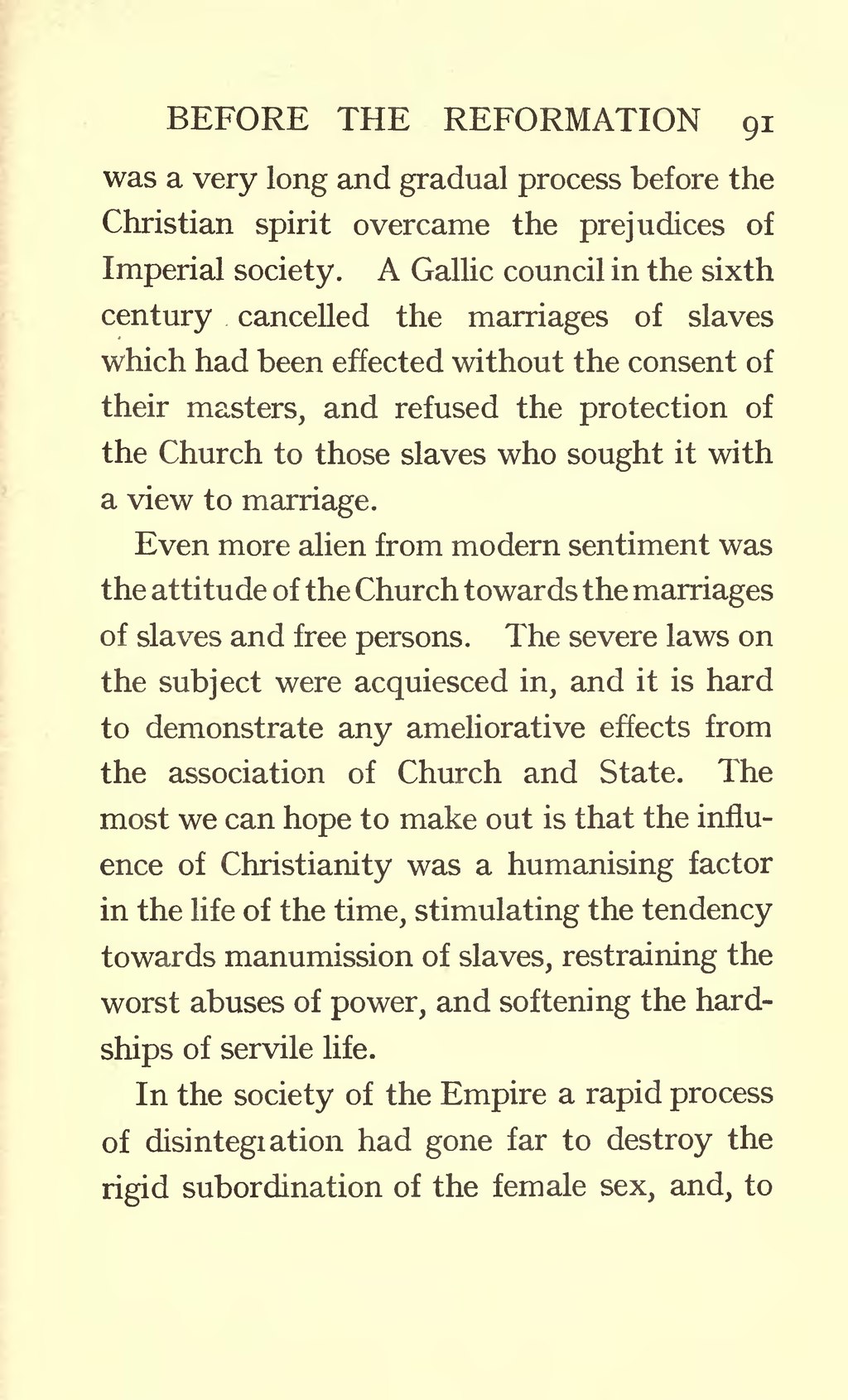was a very long and gradual process before the Christian spirit overcame the prejudices of Imperial society. A Gallic council in the sixth century cancelled the marriages of slaves which had been effected without the consent of their masters, and refused the protection of the Church to those slaves who sought it with a view to marriage.
Even more alien from modern sentiment was the attitude of the Church towards the marriages of slaves and free persons. The severe laws on the subject were acquiesced in, and it is hard to demonstrate any ameliorative effects from the association of Church and State. The most we can hope to make out is that the influence of Christianity was a humanising factor in the life of the time, stimulating the tendency towards manumission of slaves, restraining the worst abuses of power, and softening the hardships of servile life.
In the society of the Empire a rapid process of disintegration had gone far to destroy the rigid subordination of the female sex, and, to
